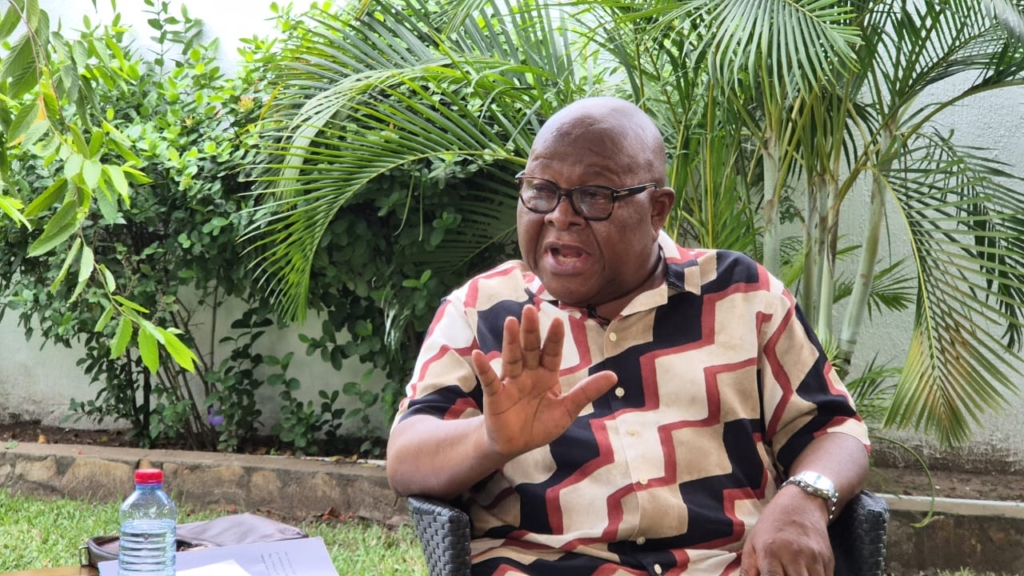
Former Speaker of Parliament Professor Aaron Mike Oquaye has criticised the section of Ghana’s 1992 Constitution on the removal of the Chief Justice in Ghana.
He does not believe the provisions in the constitution hold a high threshold and believes the law is too porous to be exploited by any person who is the President of Ghana at any time.
His comments follow the unprecedented suspension of the fourth-highest officer in Ghana after sufficient grounds were established to proceed with an investigation into three petitions seeking her removal from office.
Under Article 146(10) of the Constitution and on the advice of the Council of State, President Mahama issued a warrant suspending the Chief Justice with immediate effect, pending the outcome of a 5-member committee tasked with probing the matter.
Expressing his views on The Pulse aired on Joy News on Thursday, May 8, the retired legislator called for the amendment of the Constitution.
“Let us revisit this whole procedure as provided by law,” he told the host, Elton Brobbey.
“Why did we allow this law to exist for so long, and the people who are now criticising the system said nothing about this?”.
READ ALSO: Prof. Mike Oquaye accuses gov’t of ‘secret trial’ of Chief Justice
Professor Oquaye was quick to point out that he had raised concerns about this in the past, published as part of his contribution to the University of Ghana Alumni lecture during Ghana’s jubilee celebrations.
He was of the view that the current arrangement means, therefore, “that once the President decides that you should go, you are on your way out”.
He continued: “Judgement is by majority, so the two Supreme Court judges may say ‘Yes’, and the three civilians, ordinary people, may say ‘No. The three must hold because it is a majority. And then, thereafter, there is no appeal. The matter is closed. My brother, if it were you, would you appear before such a court? It is ridiculous. I don’t blame anybody, it is there in our law”.
Per the procedure, the President of the Republic of Ghana must receive a petition for the removal of the Chief Justice.
The 1992 Constitution does not specify which individual or group can present the petition to the President.
When the President receives the petition, he must, acting in consultation with the Council of State, appoint a committee consisting of two Justices of the Supreme Court, one of whom shall be appointed Chairman by the President, and three other persons who are not members of the Council of State, nor members of Parliament, nor lawyers.
Once again, apart from the excluded categories, the Constitution does not state who the three nominated committee members should come from.
All proceedings under Article 146 shall be held in camera (in secret).
The Chief Justice, the subject of the petition, is entitled to be heard in his/her own defence, by himself, or by a lawyer, or other expert of his/her choice.
Where the President has referred the petition against the Chief Justice to the committee, he (the President) may, acting in accordance with the advice of the Council of State, suspend the Chief Justice.
After the committee has presented its report, the President shall act in accordance with the recommendations of the committee.
The constitution does not state that a Chief Justice can appeal against any adverse findings made by the committee.
DISCLAIMER: The Views, Comments, Opinions, Contributions and Statements made by Readers and Contributors on this platform do not necessarily represent the views or policy of Multimedia Group Limited.
DISCLAIMER: The Views, Comments, Opinions, Contributions and Statements made by Readers and Contributors on this platform do not necessarily represent the views or policy of Multimedia Group Limited.